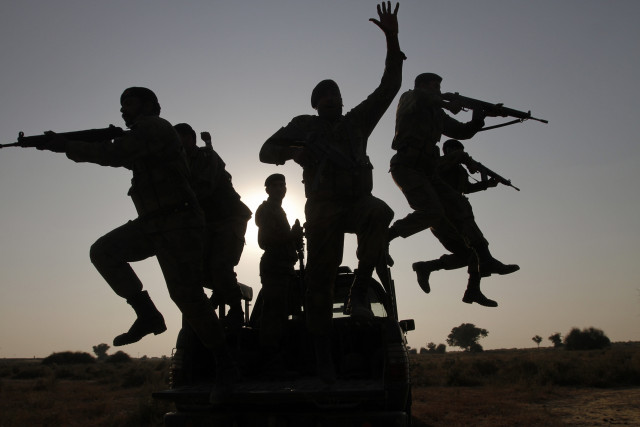Deadly clash
It is sometimes easy to forget that a full-fledged civil war is currently raging on in North Waziristan.

The violent clash involving the Pakistan Army troops, militants and gunship helicopters that were called in by the soldiers, came a day after 10 persons — described as insurgents — had died in a drone attack. Their true identities remain difficult to ascertain. But it seems that the ambushing of a military convoy close to the Amin picket point near Miramshah was intended as a retaliatory attack by the militants. Nine soldiers were killed as the convoy came under heavy fire with rockets and other weapons directed towards it. The Amin picket point has been struck before, but this was one of the most ferocious attacks that it had faced. The military, which called in air reinforcement, says several militants were also killed, but it is hard to determine what their number may have been.
Tragically, there were also civilian casualties. In the aerial shelling that took place as the clash intensified, a mosque is reported to have also been struck, killing three civilians — including according to some accounts — the prayer leader at the mosque. We need to ask ourselves how long we can sustain such fighting; what toll is it taking on our country and what the final outcome is to be. It is clear that the militants remain capable of striking where and when they please. They do not appear to have been weakened at all, and this raises before us many difficult questions. We need to see whether we need a rethink of the strategy employed in the tribal areas. We need to find a way to end the violence, which has shattered the lives of the people of the region.
Published in The Express Tribune, May 10th, 2012.














COMMENTS
Comments are moderated and generally will be posted if they are on-topic and not abusive.
For more information, please see our Comments FAQ